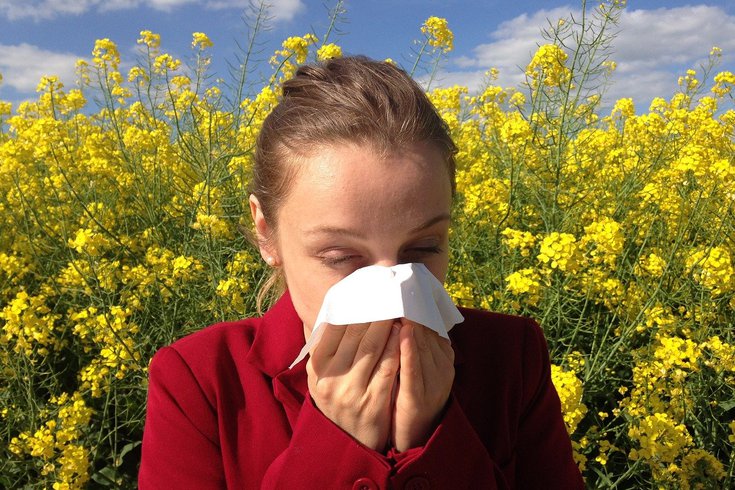
May 11, 2020
 Cenczi/Pixabay
Cenczi/Pixabay
The coronavirus has some telltale signs that help distinguish it from seasonal allergies. Though there is some overlap in symptoms, fever and chills rarely occur with allergies.
Now that spring is in the air, many people's allergy and asthma symptoms are kicking into overdrive. And with fears and anxiety over the coronavirus still high, any cough or runny nose can induce heightened concern.
Because COVID-19 affects the functioning of the lungs, people with poorly-controlled asthma can develop serious complications when infected with the virus. The best thing for people who have known allergies or asthma is to keep their symptoms under control, avoid known triggers and follow all coronavirus-related precautions.
It's also important to recognize the different symptoms caused by allergies, asthma and the coronavirus.
Spring allergy seasons lasts until early summer in many areas of the United States, including the Philadelphia region. High levels of pollen and mold are usually the most common culprits.
Symptoms of an allergic reaction include itchy eyes or nose, sneezing, running nose, a wet cough and wheezing or tightness in the chest.
According to the American College of Allergy, Asthma & Immunology, allergies are the immune system's response to an environmental trigger such as pollen, dust, mold, pet dander or certain foods.
Asthma is a chronic condition that affects the lungs and requires ongoing management. An asthma attack occurs when the lungs become inflamed, constricting the airway.
Asthma symptoms – difficulty breathing, wheezing, coughing and tightness in the chest – are triggered by allergens or irritants that enter the lungs. But not everyone with asthma has allergies. Other asthma triggers include tobacco smoke, dust mites, cockroach droppings, air pollution, strong odors or fumes and intense exercise.
An allergist can help people manage their allergy or asthma symptoms with medications and other therapies.
It can seem a little confusing, but there are ways to distinguish whether a cough is the result of the coronavirus or an exacerbation of allergies or asthma.
The most common symptoms of COVID-19 are fever, shortness of breath and a dry cough. The U.S. Centers for Disease Control and Prevention has expanded its list of COVID-19 symptoms to include chills, repeating shaking with chills, muscle pain, headache, sore throat and new loss of tase or smell.
Allergies and asthma symptoms don't usually include a fever. But most people with COVID-19 experience periods of high fever, especially at night.
While a headache and sore throat can be a sign of allergies or COVID-19, aches and pains aren't normally associated with allergies or asthma.
"Seasonal asthma during the spring may be related to tree and grass pollen, and may also be coupled with allergies in nose, throat, eyes and ears," according to The Asthma Center. "With those individuals having typical allergy symptoms in the context of cough and even shortness of breath without fever, the latter symptoms are most likely allergy and asthma and not coronavirus."
Sneezing and a congested nose generally are not associated with a COVID-19 infection, either. But the loss of the sense of smell can occur with both allergies and COVID-19.
Anyone who has a cough that is not responding to allergy or asthma medications, should call their health care provider immediately. They also should do so if they develop an accompanying fever.
Anyone who develops concerning new symptoms should get evaluated. Doctors are in the best position to provide an accurate diagnosis of symptoms and prescribe the most effective treatment.